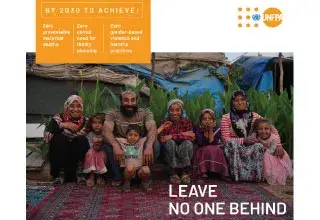Situation in Türkiye
Over many years despite the great efforts shown by governments, institutions and most importantly by women's movement, women and girls are still exposed to violence, being abused, trafficked, their access to education and political participation is refused and faced with many other human rights violations.
Though there had been progress on the elimination of gender inequality in Türkiye, especially after the beginning of 2000, the statistics still reflect the grim reality. According to the 2020 Gender Gap Index of the World Economic Forum, Türkiye is the 133rd country out of 156 countries.
According to the most recent data, in Türkyie, only 17% of the parliament members are women. This was not so different before the last elections. Despite several efforts, the figures are far from equality in terms of representation.
As in many other aspects of life gender inequality persists also in the labor market. Labor force participation rate of women is 32% and 68% for men (TurkStat Labor Statistics 2020). Unemployment rate for men is 13% and 14.5% for women.
The fact of violence against women as a concept that emerged through gender inequality is widespread in Türkiye as in the rest of the world. Every 4 women out of 10 is exposed to physical and sexual violence at least once in their lifetime as stated in the Domestic Violence Research in Türkiye in 2014 (In 2008 the exact figure was 42% and in 2014 it was 38% - meaning there is no significant difference). These figures show the scale of the problem and call for immediate action. A UNFPA survey titled “Business against Domestic Violence” indicates high prevalence of sexual and physical violence among white collar working women and the absence of response mechanisms within the private sector.
According to official records, in 2020 only, 266 women lost their lives as a result of violence against women by men in Türkiye. These figures reveal the extent of gender-based violence and the seriousness of the issue in Türkiye.
UNFPA’s Response
UNFPA has been implementing programmes in collaboration with the national and local Government Institutions (Ministry of Family and Social Policies, Ministry of Interior, Ministry of Justice, Ministry of Health, Turkish Armed Forces, Presidency of Religious Affairs etc), Non-Governmental Organisations, Universities and Private Sector for promoting gender equality, combating gender based violence and engaging men and boys to promote gender equality mainly through awareness raising, data collection, and capacity development.
UNFPA has been implementing the 7th Country Programme between 2021-2025 and under the gender component it is aimed to strengthen the institutional capacity of public and civil society organizations to promote gender equality, prevent gender based violence and harmful practices, including in the private sector. This aim will be achieved in partnership with civil society organizations and universities through advocacy, policy dialogue and technical assistance on:
(a) improving the standard operating procedures of the Government, civil society organizations and the private sector on promoting women’s empowerment at national and local levels, prevention and protection from violence, youth and adolescent empowerment, early and forced marriages, engagement of men and boys, outreach to most vulnerable groups, including refugees;
(b) improving the human resources capacity of the Government, civil society organizations and the private sector on promoting women’s rights at national and local levels, violence against women and protection, youth and adolescent empowerment, early and forced marriages, engagement of men and boys, with a focus on outreach to the most vulnerable groups, including people with disabilities and refugees, through training and awareness-raising of service providers utilizing information, education and communication materials, and hiring of staff, as necessary;
(c) supporting multisectoral service coordination among organizations working on women’s rights, violence against women and protection, youth and adolescent empowerment, early and forced marriages prevention, by developing referral pathways and establishing coordination mechanisms;
(d) fostering socio-economic empowerment of groups with special needs (including refugees) utilizing information, education, communication, peer support, employability support, and improving working and living conditions.



